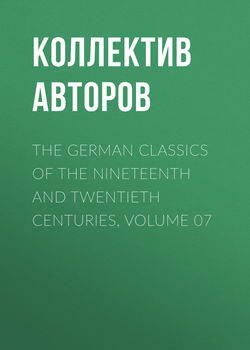Читать книгу The German Classics of the Nineteenth and Twentieth Centuries, Volume 07 - Коллектив авторов, Ю. Д. Земенков, Koostaja: Ajakiri New Scientist - Страница 11
GEORG WILHELM FRIEDRICH HEGEL
THE PHILOSOPHY OF LAW (1832)
THE CONSTITUTION
INTERNATIONAL RELATIONS
ОглавлениеJust as the individual is not a real person unless related to other persons, so the State is no real individuality unless related to other States. The legitimate power of a State, and more especially its princely power, is, from the point of view of its foreign relations, a wholly internal affair. A State shall, therefore, not interfere with the internal affairs of another State. On the other hand, for a complete State, it is essential that it be recognized by others; but this recognition demands as a guarantee that it shall recognize those States which recognize it, and shall respect their independence. Hence its internal affairs cannot be a matter of indifference to them.
When Napoleon, before the peace of Campoformio, said, "The French Republic requires recognition as little as the sun needs to be recognized," his words suggest nothing but the strength of existence, which already carries with it the guarantee of recognition, without needing to be expressed.
When the particular wills of the State can come to no agreement their controversy can be decided only by war. What offense shall be regarded as a breach of a treaty, or as a violation of respect and honor, must remain indefinite, since many and various injuries can easily accrue from the wide range of the interests of the States and from the complex relations of their citizens. The State may identify its infinitude and honor with every one of its single aspects. And if a State, as a strong individuality, has experienced an unduly protracted internal rest, it will naturally be more inclined to irritability, in order to find an occasion and field for intense activity.
The nations of Europe form a family according to the universal principle of their legislation, their ethical code, and their civilization. But the relation among States fluctuates, and no judge exists to adjust their differences. The higher judge is the universal and absolute Spirit alone—the World-Spirit.
The relation of one particular State to another presents, on the largest possible scale, the most shifting play of individual passions, interests, aims, talents, virtues, power, injustice, vice, and mere external chance. It is a play in which even the ethical whole, the independence of the State, is exposed to accident. The principles which control the many national spirits are limited. Each nation as an existing individuality is guided by its particular principles, and only as a particular individuality can each national spirit win objectivity and self-consciousness; but the fortunes and deeds of States in their relation to one another reveal the dialectic of the finite nature of these spirits. Out of this dialectic rises the universal Spirit, the unlimited World-Spirit, pronouncing its judgment—and its judgment is the highest—upon the finite nations of the world's history; for the history of the world is the world's court of justice.
